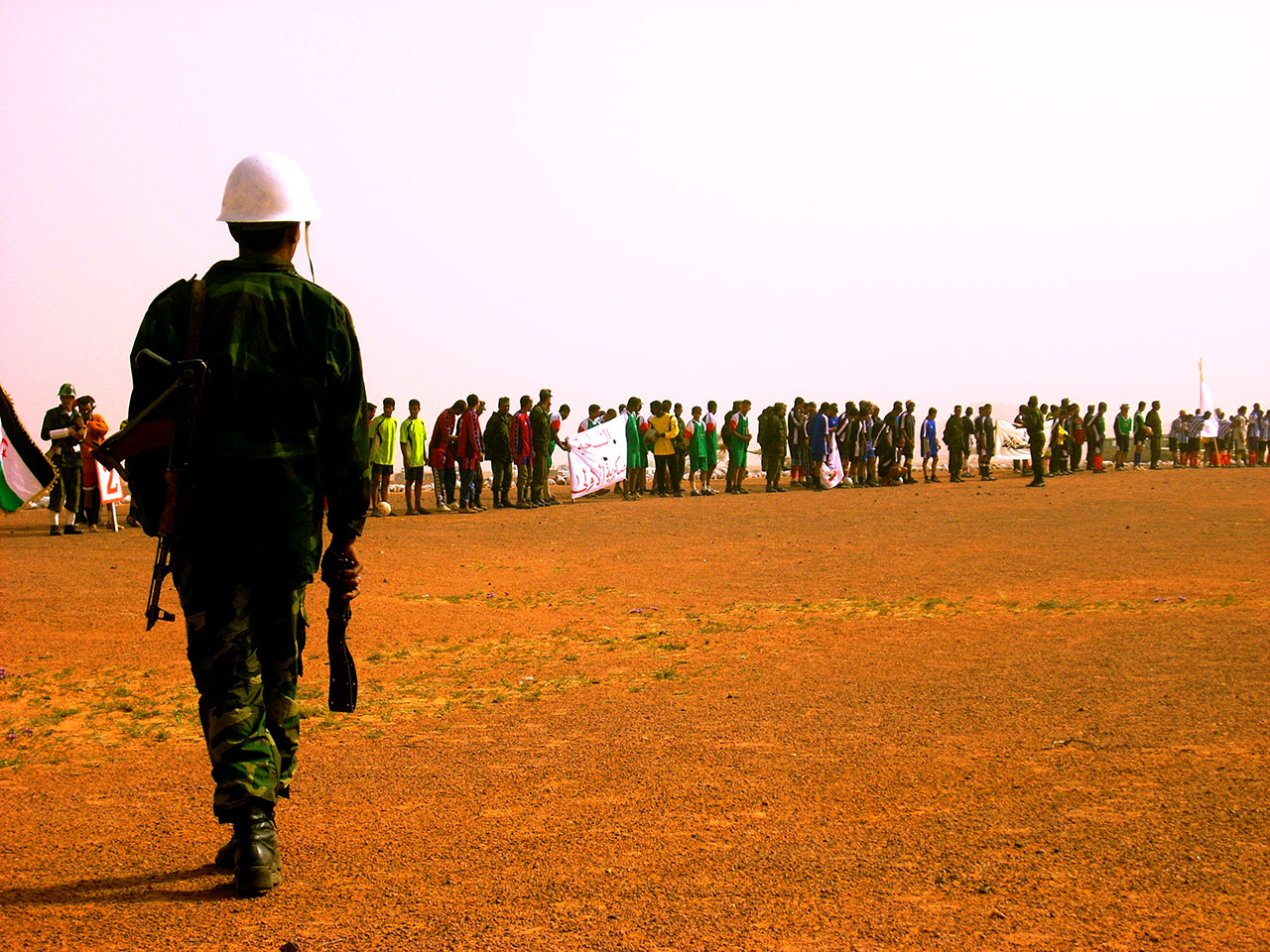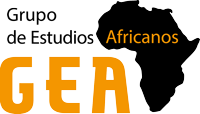Conflicts and peacebuilding

Presentation
The research cluster on “Armed conflicts and peacebuilding” was created in 2005. The main purpose of this cluster is to do some research on African armed conflicts, as well as on peacebuilding policies and strategies carried out at the international, regional (European Union, African Union, ECOWAS and their sub-regional organizations) and national-local levels, highlighting local peace initiatives run by women, community leaders, etc.
This cluster deals with issues related to the origins, causes and maintenance of armed violence in Africa by addressing both endogenous and exogenous factors (derived from the unique integration of Africa in a profoundly unjust international political and economic system). Likewise, researchers in this field pretend to analyse aspects related to the history and politics of specific conflicts, their protagonists (local, national, regional and international), their dynamics, the role of women, the violation of human rights, etc.
The other major area of interest is the field that explores the current international agenda of peace and security and how it unfolds in African theatres of conflict and post-conflict. This area affects issues such as humanitarian military intervention, the principle of the responsibility to protect (R2P), sanctions, embargoes, prevention efforts, conflict resolution and post-conflict reconstruction. The analysis deals with peacekeeping missions of the United Nations, the African Union and regional organizations (ECOWAS, SADC, IGAD), programs of humanitarian assistance, disarmament, demobilization and reintegration of combatants, security sector reform, transitional justice (criminal tribunals, truth commissions), monitoring of human rights, refugees, internally displaced, returnee, etc. Analyses of the challenges facing the incorporation of a gender perspective in the international agenda after the UN Resolution 1325 are also addressed.
For the development of its work, the research cluster is structured as a flexible and open network with a core of GEA researchers and other collaborating researchers from other institutions or centres.
Members
- Coordinator:
Itziar Ruiz-Giménez Arrieta - Elsa Aimé González
- Manuel Barroso Sevillano
- Lourdes Benavides de la Vega
- Raquel Ferrão
- Jose Luis García Barahona
- Mbuyi Kabunda Badi
- Oscar Mateos Martín
- Mayra Moro Coco
- Iván Navarro Milián
- Jorge Reig
- Virginia Rodríguez Bartolomé
- Josep María Royo Aspa
- José Carlos Sendín Gutiérrez
- María Serrano Martín de Vidales
- Aleksi Ylönen
Collaborators
- Pérez de Armiño, Karlos (HEGOA-UPV)
Research Projects
Causes and Dynamics of Armed Conflits in Africa
Since the end of the Cold War, civil wars in Africa have been depicted mainly as “new wars”, i.e conflicts taking place in failing or failed states, led by warlords and/or other criminal organizations trafficking in highly priced natural resources (diamonds, coltan, other minerals, precious woods) and in which violence and atrocities are widely committed against the civilian population. This has made the “natural resources curse” type of explanation into one of the main paradigms to accounting for conflict in Africa. Our work at the Conflict and Peacebuilding Cluster considers such monocausal type of narratives as highly reductionist, even if it finds some positive aspects to this literature.
We argue a better understanding of the complex and heteregoneous political, economic, social and cultural factors interacting in these conflicts is needed, instead of the oversimplistic narratives normally broadcast by the media, and reproduced in some of the academic literature. Our analysis tries and put each conflict in its historical and political context and gather as much interpretations possible by participants and observers alike. Who are the actors involved? What are their agendas and motivations? What type of grievances are at stake? How do they mobilize people into participating? Our answers to these questions also point to the misleading character of the “internal wars” label considering that nor their causes nor the protagonists are exclusively local or national. Instead we defend these to be sites of armed violence that ought to be explained at the regional and international levels. Finally, another feature of our aproach is that it doesn’t focus exclusively on the elites, but looks to capture the role played by other local actors such as women, community leaders, traditional authorities, human rights activists, etc. Among the conflict scenarios we’ve conducted research on are Angola, Ethiopia, Great Lakes region (DRC, Ruanda, Burundi), Sierra Leone, Somalia, South Sudan, Uganda.
The liberal peacebuilding agenda
The GEA’s research group on armed conflicts and peacebuilding has approached a number of related topics through diverse research engagements. These have included debates of critical approaches to peace and security that involve ‘liberal’ or ‘post-liberal’ peace, the processes of securitisation of peacebuilding, the impact of international sanctions, as well as other controversies and dilemmas that constitute the three main dimensions of liberal peace:
- The security dimension, with narrow Security Sector Reform (SSR), including Disarmament, Demobilisation and Reintegration (DDR) programmes, refugee repatriation, transitional justice (international courts, truth commissions, etc.)
- The political dimension, constitutional reform, support to political parties, gender agenda, human rights, etc.
- The socio-economic dimension: adjustment policies, fiscal reform, fight against corruption, reconstruction of infrastructure, etc.
In a transversal manner, we analyse the gender agenda in peacebuilding (with implementation of UN Security Council resolutions 1325, 1820 and others).
This liberal agenda, constructed on a hegemonic vision according to which liberalism constitutes prescription for peace, portrays ‘external’ actors as agents of liberalism, peace builders faced by the others -the Africans (local and regional)- portrayed as non-liberal. However, these stereotypes hide the multiple non-liberal practices also deployed by international actors involved in peace processes on the Sub-Saharan continent. Moreover, they veil the important role played by local actors in African peace processes.
Participation in Research Networks
Publications
- ¿Una nueva era para África? Nuevos desafíos y perspectivas sobre paz y seguridad en África, Los Libros de la Catarata, 2015.
- La crisis del Ébola y la construcción del Estado en África Subsahariana, CIDOB, 2015. PDF
- Más allá de la “barbarie” de Boko Haram ¿Qué pasa en el norte de Nigeria?, Viento Sur, 2015. PDF
- Security regionalism and flaws of externally forged peace in Sudan, African Journal on Conflict Resolution, 2014. PDF
- South Sudan and external involvement in the current crisis, Review of African Political Economy, 2014.
- El sueño liberal en África Subsahariana. Debates y controversias sobre la construcción de la paz, Los Libros de la Catarata y Casa África, 2013.
- Nuba Political Struggle and Failure of Comprehensive Peace Agreement in Sudan, Center of African Studies (CEA) ISCTE-IUL, Universidad de Lisboa, 2013. PDF
- The Security Issues behind the Ethiopian Intervention in Somalia (2006-2009), Center of African Studies (CEA) ISCTE-IUL, Universidad de Lisboa, 2013. PDF
- Côte d’Ivoire 2010–2011 post electoral crisis: An approach from the media, Journal of African Media Studies, 2013.
- A Critical Appraisal of External Interventions in South Sudan, Journal of Peacebuilding & Development, 2013.
- Más Allá de la Barbarie y de la Codicia. Historia y política en las guerras africanas, Bellaterra, 2012.
- Assessing the humanitarian framing of the Spanish press coverage of the Darfur crisis, Ecquid Novi: African Journalism Studies, 2011.
- La política exterior española de construcción de la paz hacia África subshariana, Grupo de Estudios Africanos, 2011. PDF
- Gender in Post-Conflict Reconstruction Processes in Africa, Intersentia, 2011.
- El impacto de la primavera árabe en África Subsahariana, Fundación Alternativas, 2011. PDF
- Paz y seguridad en África Subsahariana, Los Libros de la Catarata y Casa África, 2009.
- El acceso a la educación en situaciones de conflicto en África Subsahariana, Revista Pueblos, 2006.
- La historia de la intervención humanitaria. El imperialismo altruista, Los Libros de la Catarata, 2005.
- Las buenas intenciones. Intervención humanitaria en África, Icaria, 2003.
